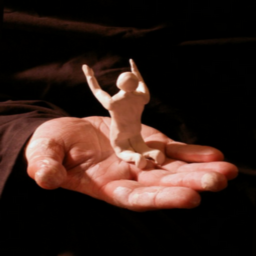 Matthew 8:5-13,
Matthew 8:5-13,  faith
faith  Thursday, September 10, 2015 at 05:16PM
Thursday, September 10, 2015 at 05:16PM  I’m thinking about the story found in Matthew 8:5-13, where a Roman soldier came to ask Jesus heal a slave. You know the story, right? It’s familiar to us all. Except that it’s frequently the stuff we think we know that has something new to say. It certainly has been whispering new life to me lately.
I’m thinking about the story found in Matthew 8:5-13, where a Roman soldier came to ask Jesus heal a slave. You know the story, right? It’s familiar to us all. Except that it’s frequently the stuff we think we know that has something new to say. It certainly has been whispering new life to me lately.
Here are five whispers; they remind me there’s more to gain:
Roman Centurions are so much a part of the New Testament narrative that I’d forgotten what outsiders they were: men of power and authority, outsiders to the religious establishment of Israel. Centurions looked, dressed, ate, and acted differently than the Jewish folk around them. And this is where we find faith: from someone beyond the boundaries. Surely there were plenty of faith-full Hebrews, but Jesus calls the outsider an exemplar. The first whisper: How many faith-full people am I ignoring simply because they don’t look like me?
This guy cared about a slave. He could’ve bought another. He was in the killing game, but he cared about a suffering of a slave. I have trouble caring about my friends; the Centurion cared enough to go find help—and he did so personally, he didn’t send any one of a hundred men under his command. A second whisper: How many violent people feel the weight of suffering?
Later on in the New Testament the Apostle Paul tells us that soldiers don’t get involved in civilian affairs (2 Timothy 2:4), but this guy did. How else would an occupying Roman soldier be aware of a Jewish rabbi who healed the sick? The Centurion knew where to go and who to ask. A third whisper: the most unlikely people might be paying attention to my world.

A fourth whisper: sometimes humility and authority are brothers. The soldier said he wasn’t worthy to receive Jesus in his home and that he, too, knew about authority. We tend to think authority comes with its own power, but this humble man knew where the real power resided (and, I suspect, where the ultimate authority dwelt as well). That’s counter-cultural everywhere except the kingdom of God.
Finally, Jesus saw faith and talked about a feast. The Lord said the banqueting ticket had nothing to do with ethnicity or connections or money or power. It had everything to do with faith. God honors faith the way we honor cold hard cash. Faith is the currency of his kingdom. Jesus also said, “It will be done just as you believed it would.” Sitting at the intersection between faith and imagination there’s a pagan soldier, certain of the outcome. He gets it exactly right. Then comes the fifth whisper: faith sees the outcome before the action starts. And Jesus is impressed.
It’ll be five days before another post, but five whispers will echo in my brain until then. How about you?
 Saturday, May 31, 2014 at 09:38AM
Saturday, May 31, 2014 at 09:38AM  Almost no one uses a grandfather clock these days, but that doesn’t mean the pendulum isn’t busy swinging back and forth. There is a back-and-forth sway of popular ideas in society—and in the society of God’s people, known as the church.
Almost no one uses a grandfather clock these days, but that doesn’t mean the pendulum isn’t busy swinging back and forth. There is a back-and-forth sway of popular ideas in society—and in the society of God’s people, known as the church.
My first twenty years with God I was surrounded by the need for faith, expressed in plain Evangelical language. Saint Billy Graham provided a fine bumper-sticker example: “God said it. I believe it. That settles it.” Bible-teacher Derek Prince intoned, “All progress in the Christian walk is by faith.” Both sayings are true, but the pull of groupthink created an environment where faith morphed into a powerful orthodoxy of agreement. We all boldly proclaimed our faith—even when we didn’t quite believe it.
My second twenty years with God saw the invisible pendulum swing the opposite way. Honest doubt became the password of authenticity. Certainty became the sign of arrogance. The cyber community reminded us the difference between someone’s interpretation of the Bible and “Bible truth.” They demonstrated how doubt could lead to spiritual growth. “I believe—help me in my unbelief” became a popular topic among emerging church leaders. But the pull of groupthink worked here as well. Although doubt is often a useful path for discovery, it became the approved approach to faith: don’t trust anyone who is firm in his or her beliefs. The only “honest” position is doubt.
I have great hope for the next few years. Perhaps we can live for a while in the center, a place of humble certainty.
We can find the place of humble certainty if we embrace the need and the blessings of faith while holding our doubts and fears honestly without making them into a virtue.
Consider these very challenging words from John’s gospel, the very last message of the book: “these things are written that you may believe that Jesus is the Messiah, the Son of God, and that by believing you may have life in his name. There’s a deep connection between believing and receiving a divine quality of life. The final phrase, “that by believing you may have life” is about something more than going to Heaven; it’s about the quality of life available to us here and now.
Make no mistake: it takes faith to experience this kind of life. Without faith, the flow of divine life is choked to a trickle. Not a faith in propositions, or political positions, or even correct doctrines, but a trusting relationship with a living person, Jesus. In my first twenty years I was told faith meant following a line of behaviors or practices that “proved” my commitment. In my second twenty years I’ve been told that doubt is the only honest kind of faith. In my first twenty years the Apostle Peter was my example; in the second twenty it was Doubting Thomas. But neither Peter nor Thomas give life. Life comes from only one man, Jesus, the Messiah, the Son of God.
If the pendulum is entering the radical middle, perhaps we can re-define faith as trust—the kind of trust that flourishes between two people when they share life together. That’s the faith/trust I want with Jesus. To the degree I experience the divine life of peace, that’s the measure of my faith. How about you? Can you live in the center?
 Wednesday, May 16, 2012 at 11:08PM
Wednesday, May 16, 2012 at 11:08PM  True Story: in college I read the twin passages in Isaiah and Peter, “By his wounds we are [were] healed.” I sat at my desk, wearing my glasses. I thought the fact I wore glasses meant I was flawed--that I was sick. I read the Bible verses and faced a crisis of faith: I wanted to stand in faith on these wonderful promises--which would I believe: God’s perfect word or my fuzzy vision? I prayed, “God, I have faith in this promise. By your wounds I am healed.” Without any fanfare I set my glasses on the desk, went to bed, woke up the next morning and announced to my friends that God had healed my eyesight!
True Story: in college I read the twin passages in Isaiah and Peter, “By his wounds we are [were] healed.” I sat at my desk, wearing my glasses. I thought the fact I wore glasses meant I was flawed--that I was sick. I read the Bible verses and faced a crisis of faith: I wanted to stand in faith on these wonderful promises--which would I believe: God’s perfect word or my fuzzy vision? I prayed, “God, I have faith in this promise. By your wounds I am healed.” Without any fanfare I set my glasses on the desk, went to bed, woke up the next morning and announced to my friends that God had healed my eyesight!
“No way!”
“Absolutely,” I declared, choosing to believe God’s word more than my blurry vision. “I asked him to heal my eyes, and now I see perfectly.” I still couldn’t see very well.
I was the talk of the campus for a few days. Of course, my eyes were actually no different, but I was determined to believe God’s word rather than my lying symptoms. My glasses stayed on my desk for two years. When I graduated from college and moved away, I quietly put them back on. I was a faith failure.
Some Bible-words sit behind so much stained glass it’s hard to recognize their meanings anymore. For me, it was the word "faith."
Several years ago the word faith became so stale I was tempted to cut it out of my Bible. Every time I read "faith," the word seemed so heavy and trafficked with religion. Televangelists rave about faith. Athletes use it like human growth hormone. George Michael sings about it. For me, it had become a lifeless word, an albatross around my neck, a flat tire slowing me down, or a worthless metaphor like the bird and the tire.
It was a problem, because I’ve been told that without faith it’s impossible to please God. Everyone kept telling me faith was the currency of God’s Kingdom, which meant some days I was bankrupt and other days I was a rich as a sailor on payday. I was a pastor for 15 years--I was supposed to deal faith like Kanye deals beats. But when it came to faith, I needed five new letters like David needed five smooth stones--you get the idea, right? I needed a fresh metaphor.
Then Holy Spirit changed my life when he gave me a new meaning. The Spirit whispered the simple word, "trust," and new life filled my veins. I may not have had faith, but I knew how to trust. I had trusted my friends and been rewarded with deep and lasting relationships. I’ve had complete assurance that no matter what bone-headed thing I’d done they would not judge me or leave me. I met the woman who became my wife, and I’ve trusted her for decades. That trust has grown into a little outpost of God’s Kingdom on earth as together we model Jesus and his bride. Trust is the natural outcome of loving relationship.
Faith I do not understand. Trust I have lived day-by-day.
So many believers have been taught that faith exists as a proposition: you believe, then God fulfills his promise. The Bible is filled with promises, and many of us have been taught that faith means reading those words, even memorizing them, and (I have really heard this) “holding God to his promises.” If faith is only propositional, no relationship is necessary. Faith is a currency, God is selling promises, so pay the Man.
It never worked for me. Frequently I mis-understood the meaning of the words I read in the scripture. Even more frequently I presumed upon the Father’s good grace, and tried to tell him what to do. Most frequently of all, I talked myself into having faith in something I didn’t really believe. Like the little girl in Sunday School who answered honestly, “Faith is believing something you know isn’t true.”
But trust? I’ve learned to trust people even when they’ve hurt me. I’ve learned that trust transcends my puny brain; trust builds a bridge between my foolishness and his mercy. I don’t care one bit about “the problem of evil” portrayed in the Book of Job. In that wonderful book I met a man who trusted God beyond all reason, because God was his friend.
I suspect I’ll be a faith failure all my life, but I trust the One who will welcome me home in the end, and I trust him day by day.
 Monday, April 16, 2012 at 12:02AM
Monday, April 16, 2012 at 12:02AM  The Creator of the Universe is not easily impressed. Some theologians suggest that because God knows everything, he cannot be moved, but I think some things can capture God's heart. Not power or beauty or intellect--those are the things that impress fools like us. But imagine that moment when the King of the Universe sits up and takes notice of you because of something you thought, said, or did. Could you stir his heart? I think it's possible.
The Creator of the Universe is not easily impressed. Some theologians suggest that because God knows everything, he cannot be moved, but I think some things can capture God's heart. Not power or beauty or intellect--those are the things that impress fools like us. But imagine that moment when the King of the Universe sits up and takes notice of you because of something you thought, said, or did. Could you stir his heart? I think it's possible.
Based on my reading of the scripture, here’s my simple list of what catches the Lord's attention. I’ll bet you could add a few more:
Jesus loved these traits. They caught his attention. But there is one human trait that never seems to impress God: our intelligence. In fact, he said, "I will destroy the wisdom of the wise," and in Jesus he did just that. One thing is sure: God is never impressed by our intellect, but he is frequently impressed by our heart.
 Monday, December 5, 2011 at 12:43AM
Monday, December 5, 2011 at 12:43AM